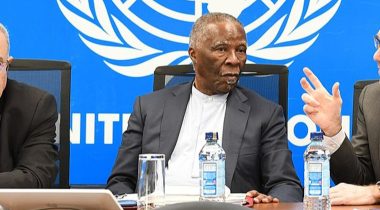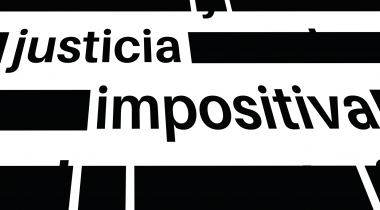
Andres Knobel ■ Faking residency: OECD’s Common Reporting Standard leaves the door wide open for fraud

The OECD’s Common Reporting Standard (CRS) for automatic exchange of banking information leaves the door wide open for fraud. The OECD has recently made available a form to report potential avoidance schemes of the CRS. While this form is a first useful step – we’ve been sharing with them the loopholes and risks we’ve identified, and a suggestion on how to assess countries compliance with the CRS. However, we haven’t seen anything get fixed yet…
While the lack of access to automatic banking information by developing countries is our major concern with the CRS (all as a consequence of the OECD’s arbitrary conditions, such as the need for reciprocity or to be chosen in return through the ‘dating system’), for those countries that will manage to exchange information with each other, other risks prevail. Most notably, the need to (effectively) determine the residency of each account holder.
The CRS depends on banks and other financial institutions collecting information on their account holders and determining their residence, so that their banking data will be sent – via tax authorities- to the right country. If an account holder manages to convince the bank that they are resident in country A (which is not the country where they actually live, work and pay taxes), their information will be sent to country A, and the (crook) account holders and their money will remain safe and unknown to the relevant authorities.
This case is not to be mistaken with a situation where someone decides to emigrate to a new country to live and work there. In that case, they would legally be resident in the new place and authorities of the new country would be the relevant ones. That’s totally fine.
The problem is that individuals could keep living and working in one place, enjoying the security, infrastructure, public schools and public hospitals and any other benefit of their real country, while simply lying to their (foreign) bank about where they are resident, so that information on their foreign bank accounts would never reach the relevant authorities (either for the purposes of evading taxes, laundering money, etc.).
This is not just something that should be of theoretical or philosophical concern, many tax havens (including OECD countries) are offering residency certificates and citizenship in exchange for money right now, usually way beyond what current refugees risking their lives are able to pay, starting from around $US 250,000. In other words, if you’re wealthy enough, you’re allowed to live in these places, but you don’t have to. So, it’s not that wealthy people may emigrate to a new country to live and work there – that would be fine (especially if it wasn’t available only to wealthy people). The problem is that wealthy people (who can afford these certificates) may continue to live and enjoy their home countries while only pretending to be resident somewhere else, because these citizenship or residency certificates do not require the person acquiring them to spend a long time in that country, if at all.
Many will claim that these residence and citizenship certificates are needed to help political opposition leaders, minorities and other vulnerable people in ‘rogue countries’ and dictatorships, in case they need to flee or at least to make it easier for them to travel abroad without a visa – never mind that the same arguments and examples are used to justify tax havens and secret bank accounts. There are of course refugee application processes designed for that, but our argument is that since these potentially fake certificates of citizenship are so easily available (even if there might be good reasons for having them), the CRS should do a much better job to make sure that the residence people declare is indeed their genuine residence.
It is not enough to only ask for account holders to declare their residence and at the most ask for a government-issued certificate (such as a passport) and a utility bill in case the official ID doesn’t have an address. By the way, investments for residency usually involve purchasing real estate, so that as long as you pay electricity or gas or other utility bills, your whole “cover” works!
To make matters worse, some countries are choosing “voluntary secrecy” under the CRS which means they choose to send banking information, but not to receive it from other countries. A jurisdiction like the Cayman Islands offering residency or citizenship in exchange for money and choosing “voluntary secrecy” means that Cayman will send information to 44 jurisdictions (as of May 2017) but will receive it from no one and of course will experience a high demand for their certificates. Any tax dodger will not only manage to have her/his bank account data sent to the wrong country (the tax haven), but her/his information will not even be collected by the bank at all (because the country chose “voluntary secrecy”, all of their residents automatically become “non-reportable” people).
So what should be done? At the very least, the CRS should impose extra due diligence requirements to determine true residence whenever an account holder declares residence in a country that:
- Offers residency or citizenship in exchange for money, or
- Opted for “voluntary secrecy” (technically: the country is listed under Annex A of the Multilateral Competent Authority Agreement. This is verifiable in the list of activated AEOI relationships by looking for countries sending information to other countries, but receiving it from no one).
Other indicators which should trigger extra due diligence should include:
- The residence does not match the country of birth or nationality, or
- The account holder does not speak the language where she/he claims to be resident (this would not be at all odd for cosmopolitan cities, if say a person only speaks Spanish but lives in Miami or only speaks English and lives in Berlin. However, it should ring some alarm bells if a person declares to have lived in Cayman the past 10 years but speaks only Russian or Chinese. In any case, this should constitute a trigger to seek more information, allowing the account holder to explain their situation).
If any of these indicators are met, the declared residency should not be automatically rejected, but additional information should be requested in order to make a determination, including:
- A list of past residence in the previous 5 or 10 years
- Proof of residency in the declared country, including passport stamps showing how long the person stayed in that country, local bank accounts, school where children study, gym membership, social security payments or any other proof that a person who actually lives in a country should easily be able to produce.
- A box to tick indicating that all information is true, while warning that providing false information will be subject to criminal prosecution.
While this may sound excessive, given all the work banks already do to comply with the CRS, it would only be triggered by those account holders declaring their residence in a country that offers certificates in exchange for money or that has opted for “voluntary secrecy” as described previously.
We have also proposed – as explained here – that countries should publish statistics to identify other avoidance mechanisms and to ensure compliance with the CRS by all parties.
Related articles

Did we really end offshore tax evasion?
The State of Tax Justice 2024
How ‘greenlaundering’ conceals the full scale of fossil fuel financing
11 September 2024

10 Ans Après, Le Souhait Du Rapport Mbeki Pour Des Négociations Fiscales A L’ONU Est Exaucé !

Another EU court case is weaponising human rights against transparency and tax justice
Submission to Special Rapporteur on the independence of judges and lawyers on undue influence of economic actors on judicial systems

The secrecy enablers strike back: weaponising privacy against transparency
Privacy-Washing & Beneficial Ownership Transparency
26 March 2024

New Tax Justice Network podcast website launched!



This is all good advice but one must not forget that there are actually a lot of people who have offshore bank accounts because they do not feel safe in their home country. I am not referring to the threat of war or being a victim of unfair persecution for political reasons (although these are valid reasons too). I am referring to for example South Africa which has declared whites to have less rights than blacks through existing laws (such as the BEE law) and other campaigns which have come to light in recent months where the president intentionally incited racism. A South African living in SA or an expat living there will understandably not feel safe saving all his money in the country and has the right to privacy if he wishes to save some of it in say the Cayman Islands. The tax authority Sars in SA is not without corruption. Information can be used for bribery and even kidnapping, although only the former is the most common risk. Furthermore, even non corrupt officials at Sars are unfairly biased when trying to decide grey areas in their own tax laws and they are eager to charge you more tax than fairly required. If the money is in the country they will block it. If they see it abroad, they will bill you and freeze your assets. So the CRS, although having good intentions, is not catering for all these innocent people who feel their governments are a genuine threat to their wealth and, in some cases, their lives. Its all good to keep hounding on how much tax evasion has to be fought but rather than try to create the impossible (expecting banks to check everyone’s passport stamps is a joke) perhaps a task force should be created to monitor and investigate suspicious money transactions. With the right infrastructure and software this can happen.
The proposals are quite silly, based on narrow mined perceptions and assumptions
1) the assumption is that the vast majority of people that buy visa do so to avoid tax. Total nonsense. There are countries, where the only way to remain with ones family is to purchase a visa. Should these people be see as tax evaders.
2) the assumption is that people should work in the country they stay. Total nonsense. What about those who are retired and those retiring early to living off investments or legacy. These are legitimate residents and all are subject to local tax codes. Should they be burdnend with extra compliance requirements.
3) the OECD and west work on the assumption that all counties are equal. Total nonsense. All counties are different. The recommendation of visa stamps as proof..really!!!! Singapore, Australia and many other countries no longer stamp passports. Then you may say easy get a record of movement from the immigration….great go and ask the Singapore immigrantion for such a record… no chance. You will
just be asking people to obtain the impossible to comply.
We must face facts all this CRS is garbage, that is difficult to implement, difficult to police, cost banks and counties much more than the tax collected.
There is only one just system and that is to equalise tax rates globally and tax at source ie where funds are located. There is then no inventive to run and hide, and no need for all this addition cost and paperwork that does not work. If the tax rate in Australia is 30% and the tax rate in Singapore is 30% what insentive tax wise is there. So eliminate worldwide taxation, tax at source and Harmonise tax rates.
Firstly, the assumption is that to be living in a country you must be working. What about retirees, what about those that live purely of their investment.
The problem with CRS and FATCA is that they are based on wild estimates of money that is purportedly avoiding taxation. In chasing this money, an incredibly costly and burdensome administrative charge has been imposed on lawful banks and law-abiding citizens. The incredible complexity has put many honest people in the path of double taxation and punishment for fraud. Zero-sum accounts held abroad are punished under FATCA, for instance. A French citizen living in Belgium but maintaining an old savings account in France will be double-taxed on interest, legally, and will receive various menacing reports from his French bank, insisting he is being reported to Belgium. Some of these reports are even wrong. Belgium has reported to France that I have accounts in Belgium, even though I live in Belgium and have no taxation in France. It’s all a huge mess.
And for what? Does someone have a report of the untold billions now available thanks to FATCA and CRS? Hmmm. I didn’t think so. Funny, eh, now that these regulations are in full force, that governments are NOT awash in newly found cash.
Here’s my theory: FATCA and CRS are COSTING us a LOT MORE than they will ever bring us in tax revenue. Indeed, their cost is well-documented, because it EXISTS (and is in the tens of billions of dollars for FATCA alone). Their benefit, on the on the other hand, seems to be an illusion.
Brilliant straightforward comments here by “rob” and “Fred”, while article author “Andes Knobel” didn’t bother to provide any reasonable response despite the fact that a “Reply” facility is available. Regrettably, this by itself is evidence of the one-sided Javert mentality of the proponets or CRS.